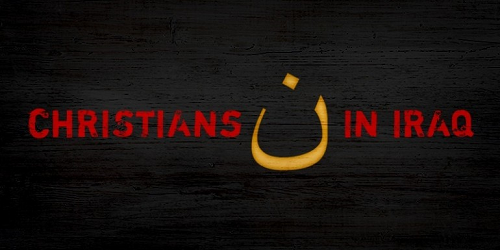2020 Pennsylvania Ave. NW #241
Washington, D.C. 20006
www.persecution.org | E-mail: icc@persecution.org
By Todd Daniels
09/01/2015
Washington, D.C.
International Christian Concern
"How can we stay in a country that doesn't respect humanity?"
This was just one of the questions posed to me by Mr. Louay* as we sat on a mattress in the corner of the large room that his family had apportioned as their new home.
He, his wife, and their two sons - one who should start his final year of high school two weeks from now and the other university aged - used to live just an hour south in Qaraqosh, Iraq. The area known for centuries as Iraq's Christian capital had been home to approximately 40,000 Christians.
In the summer of 2014, ISIS (also known as the Islamic State, or ISIL) jihadists took first the city of Mosul, Iraq's second largest city, and then continued their assault across the Nineveh Plains, taking Qaraqosh and many of the surrounding Christian villages and moving towards Sinjar Mountain, home of the majority of Iraq's Yazidi community.
These religious minorities were massacred, abducted, and driven out with brutality that seems almost unthinkable in the modern world. Yet, the targeting of religious minorities continued because they believed the wrong thing.
As a Christian, a Yazidi, or a Shi'ite Muslim, ISIS jihadists would, at their most generous, give the offer to convert to their fanatical interpretation of Islam, pay an unspecified but exorbitant tax and live as a subjugated minority, or face execution.
For more than 150,000 Christians from Mosul and the villages of the Nineveh Plains, they fled in the morning hours before ISIS came to their homes. Homes that are now marked "property of the Islamic State" and either used to house foreign fighters and their families, looted, or simply destroyed.
This is the story repeated by family after family of those who have found temporary refuge in Iraq's Kurdistan region.
Now the number of those repeating this story is dwindling quickly.
The religious center where Louay and his family live now is home for 44 families, far too many people for any sort of privacy. Yet, in the months immediately after the crisis this center was housing more than 100 families. Just three months ago there were 62 families, and last week it was down to 44 families.
Where have all of these families gone? A few have found housing in Iraq, but the vast majority have left the country and expect never to return to live. Some have moved to Beirut or Amman or California and are attempting to restart life with family who have gone there before.
Still others are likely part of the record breaking surge of refugees and migrants attempting to enter Europe, whether by land through Eastern Europe or making the dangerous crossing of the Mediterranean from the North African coast.
This is the latest wave of Iraq's Christian community fleeing the country as violence has not only rocked the country, but specifically targeted them as religious minorities.
The political solutions seem far removed from addressing the realities facing families like Louay's.
"We don't have much faith in protest movements as a means to change," he said. "The constitution is based on Sharia and cannot contradict Islamic principles. Yet, it claims there is freedom of religion. These are two contrary ideas. We have to have a country that respects the 'other.' That allows for religions to live together," Louay continued.
While he can see things that need to change, for his life and the future of his sons he believes that they too will soon be leaving the country.
"I don't have much faith in the future as a Christian in Iraq," Louay said.
Then he asked a surprising question, one that a few others have voiced as well.
"What do Christians in America think about the future of Iraq? Do they think things will change? Will Christians be able to live here in Iraq?"
For Christians in Iraq, they truly believe that their brothers and sisters in America and around the world do make a difference in the future of Christianity in Iraq.
They have witnessed it firsthand over and over again the past year as aid poured in to provide food, water, and shelter to sustain them through this crisis.
Now as they look for the future - as they need jobs and education for their children - they are wondering if Christians around the world will continue to stand with them or if they too are losing faith in Iraq.
The answer remains to be seen whether leaders can find the ways to provide for security and a future for Christians to remain or if Iraq is going to be losing entire faith communities, one family at a time.
*Name Changed for Security
For interviews, contact Olivia Miller: press@persecution.org
# # #
You are free to disseminate this news story. We request that you reference ICC (International Christian Concern) and include our web address, www.persecution.org. ICC is a Washington, D.C.-based human rights organization that exists to help persecuted Christians worldwide. ICC provides Awareness, Advocacy, and Assistance to the worldwide persecuted Church. For additional information or for an interview, contact ICC at 800-422-5441.



 RSS Feed
RSS Feed